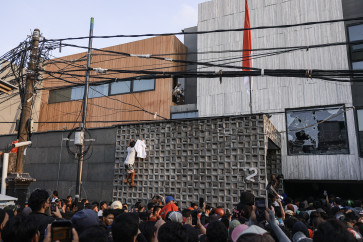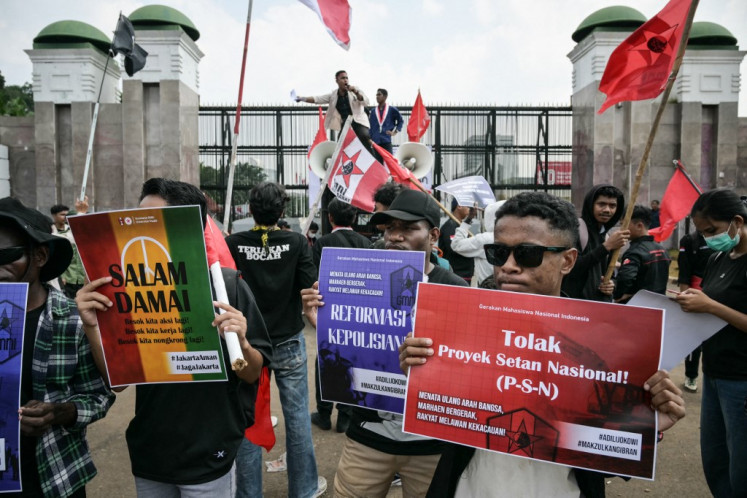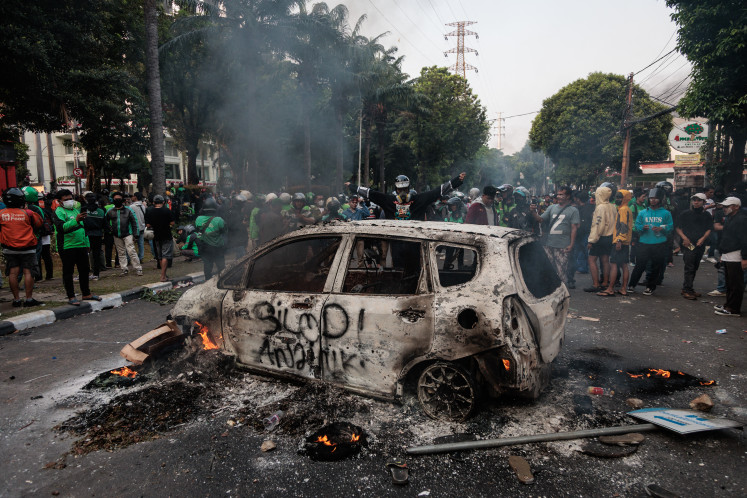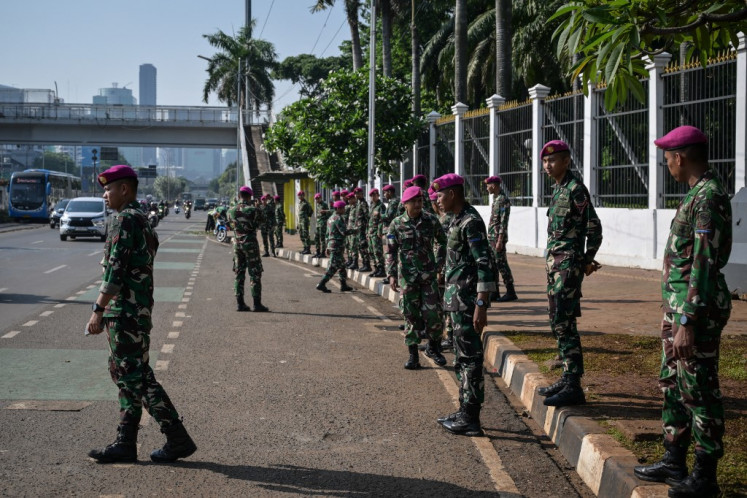Popular Reads
Top Results
Can't find what you're looking for?
View all search resultsPopular Reads
Top Results
Can't find what you're looking for?
View all search resultsThe road to democracy in Egypt begins with free speech
The journey towards a democratic Egypt has just begun
Change text size
Gift Premium Articles
to Anyone
T
he journey towards a democratic Egypt has just begun. If there is one thing that Egyptians agree upon after the revolution that ended the long reign of ruthless former president Hosni Mubarak last week, it is that they want to be governed democratically. They didn’t take to the streets and face severe beatings, harassment and intimidation from Mubarak’s thugs only to make way for another dictator.
Democracy is the only way forward for the nation that has just come out of nearly 30 years of repression. It is irresistible to draw parallels with what happened in Indonesia 13 years ago, when its own people-power movement ended the 32-year rule of equally ruthless Soeharto. Egypt no doubt will follow its own path at its own speed, but there is one lesson that it can take away from the Indonesian experience: The road to democracy must begin with free speech — and within it freedom of the media — securely in place.
The road Indonesia took was filled with roadblocks, potholes and diversions, but free speech ensured that the nation kept moving in the right direction, and that there is no going back to the old ways, including the return to another dictatorship. Today, three elections later, democracy in Indonesia is still a work in progress. The country has had four presidents in the last 13 years and their fate was determined periodically at the ballot box.
Soeharto, like Mubarak, left a nation devoid of democratic political institutions. Typically, dissenters were treated as traitors.
While free speech, and its subset freedom of the media, is but only one of the essentials of democratic governance, it was considered the most imperative of all when Indonesia began the arduous task of building the nation on democratic foundations.
One of the first things that the new interim government under then president B.J. Habibie undertook in May 1998 was to lift all restrictions on the media. This led to the explosion in the number of publications, followed by an equally explosive rise in the number of TV and radio stations. And then the Internet came, and with it the social media, to push the boundaries of free speech even further afield.
The challenge facing any nation that has just emerged from a long period of dictatorship is immense.
Reformasi, the slogan of the 1998 people-power movement, meant thorough reforms on all fronts to fix everything that was wrong under Soeharto.
Indonesia went through a series of constitutional amendments in 2000-2002 to strengthen democratic political institutions such as the election mechanism, limits on the powers of presidents (including limiting the president to no more than two consecutive five-year terms), a more balanced relationship between the president and legislative and judiciary bodies, decentralization of power, the establishment of various independent state commissions, and stronger guarantees on various freedoms, including of expression, association and religion.
Indonesia has also undertaken massive reforms of the military and the police — both were tools of repression of Soeharto — as well as the judiciary and the bureaucracy. Successive administrations launched anticorruption campaigns with varying degrees of success. The economy also needed fixing after the 1998 financial crisis that bankrupted the nation, blamed mostly on uncontrolled corruption by Soeharto and his cronies.
It was a lot of hard work for any nation and there were no shortcuts to success. After almost 13 years of Reformasi, Indonesia has not quite achieved all the goals it set out to do.
There are times when people thought that the nation was reverting back to the old repressive ways, or was just stagnating. There is a lot of frustration among the people at the slow pace of progress, or at their unfulfilled expectations.
This is why free speech is imperative: When everything else is perceived as failing, at least people still have the chance to have their voices heard. With the freedom of the media (and now with the largely unregulated social media networks), they will always have outlets to channel their grievances, rather than leaving them pent up inside only to explode violently as in the past.
Free speech also ensures that the aspirations of the people are constantly heard by the elected rulers, and not only between the periodic elections. It also guarantees that all voices are given space. While this inevitably includes tolerating the radical voices and even hate speech, more importantly, it gives the minorities and the marginalized their rights to be heard too.
Freedom of the media is always a subset of freedom of expression. The guarantees of press freedom have also meant that almost all voices are represented in the media. Indonesia is fortunate that many mainstream media outlets are independent enough to counterweigh the partisan media outlets that reflect the business and political interests of their owners.
Not surprisingly, there are detractors who would stop at nothing to re-impose control over free speech and media freedom, but they find little support from the majority of the public now accustomed to having their voices heard and getting their news uncensored by the government.
Most Egyptians under Mubarak experienced the benefit of free speech when they turned to social media networks, which remained outside government control until it was too late, to launch their uprising three weeks ago. They will want to make sure that freedom of expression is guaranteed first and foremost as they begin on their long and arduous journey towards a more democratic, just and prosperous Egypt.
The writer is senior editor of The Jakarta Post and currently a fellow at the East West Center in Washington, DC.










